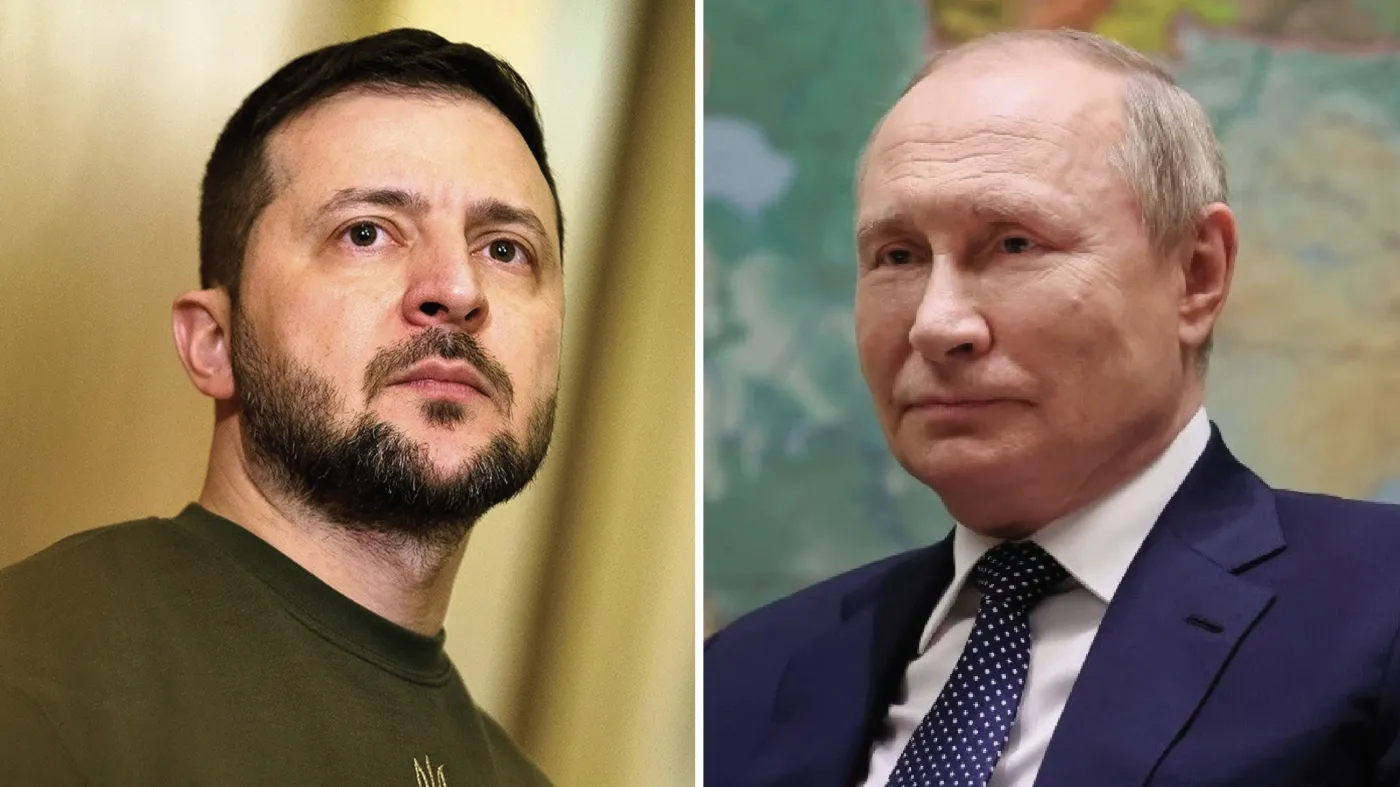Already a subscriber? Make sure to log into your account before viewing this content. You can access your account by hitting the “login” button on the top right corner. Still unable to see the content after signing in? Make sure your card on file is up-to-date.
A top Russian official has now indicated that President Vladimir Putin is open to meeting Ukrainian President Volodymyr Zelensky, but only if unspecified “preparatory work” is completed.
Some shit you should know before you read: If you’re unaware, the Kremlin has consistently rejected direct talks between President Vladimir Putin and Ukrainian President Volodymyr Zelensky, repeatedly dismissing Zelensky’s calls for a leaders’ summit to negotiate an end to the war. The most recent rejection came from a top Russian official who said that any meeting would be “pointless” unless Ukraine first agreed to Russia’s preconditions, which include:
- Recognizing Russian sovereignty over all occupied Ukrainian territories (Crimea, Donetsk, Luhansk, Zaporizhzhia, and Kherson)
- Renouncing its aspirations to join NATO or any other Western military alliance
- Accepting the “demilitarization” of Ukraine, limiting its armed forces and weapons systems
Ukrainian officials have condemned these demands as unrealistic and “ridiculous,” describing them as a blatant attempt to force Ukraine into surrender while Russia continues its military aggression.

What’s going on now: In a notable development, Kremlin spokesman Dmitry Peskov announced that Russian President Vladimir Putin does not rule out the possibility of meeting Ukrainian President Volodymyr Zelensky after months of refusals. However, Peskov made clear that such a meeting could only occur after unspecified “preparatory work” is completed at the expert level and once “the appropriate distance is overcome.”
Ukrainian officials, while reiterating their openness to a leaders’ meeting, immediately cast doubt on the sincerity of Russia’s new tone. Zelensky’s chief of staff, Andriy Yermak, dismissed Peskov’s remarks as hollow, calling them “yet another attempt to buy time” given the lack of concrete steps or clear conditions. Nonetheless, Yermak said that Ukraine is ready for direct talks if Russia genuinely commits to a peace process.
Meanwhile, Yermak urged the United States to increase economic pressure on Russia by targeting the country’s energy exports (a primary lifeline for Moscow’s war economy). He argued that the Russian economy, heavily reliant on the sale of oil and gas, is already showing signs of strain and that stronger secondary sanctions could “strangle” its capacity to continue financing the war.
This all comes as President Trump has dramatically escalated pressure on Russia, announcing that if a ceasefire is not reached within days, he will impose sweeping new sanctions (including secondary tariffs on countries that continue to purchase Russian oil). Initially setting a 50-day window, Trump recently advanced the deadline to August 8, citing frustration with Russia’s continued bombing campaigns. These secondary sanctions are designed to disrupt Russia’s oil revenue by targeting its international buyers, making it more costly and politically risky to trade with Moscow.
Among the main targets of this strategy is India, which has become one of Russia’s top energy partners since the war began. Trump and senior White House officials have upped the criticism of India in the last few weeks, accusing the country of effectively financing Russia’s war by dramatically increasing its purchases of Russian crude. Deputy Chief of Staff Stephen Miller called India’s role “astonishing,” noting it is now nearly tied with China in Russian oil imports.







